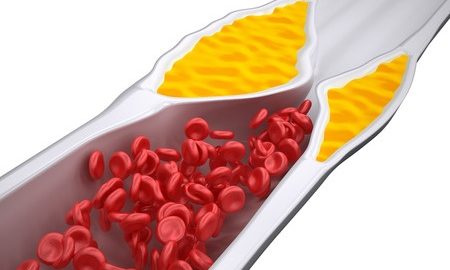Potential Alternative to Anti-Cholesterol Statin Drugs

Statins are a class of drugs used to treat high cholesterol levels in the body. Specifically, these medications lower bad cholesterol (LDL). However, these lipid-lowering drugs are associated with several side effects including muscle aches, headache, flushing, difficulty sleeping, nausea, vomiting, abdominal cramps, drowsiness, and dizziness. Moreover, not all patients respond to statins. Now, researchers in South Carolina have used stem cell drug screens to identify a new class of drugs that could benefit patients who are unresponsive to statin therapy for hypercholesterolemia (high cholesterol levels in the blood).
Potential Alternative to Anti-Cholesterol Statin Drugs
Investigators at the Medical University of South Carolina tested several classes of medications and found that cardiac glycosides, which are typically used to treat heart failure, can reduce cholesterol in the body. The findings, published in the journal Cell Stem Cell, showed that patients who did not respond to statins benefit from digitalis and its derivatives (digoxin and digitoxin), also known as cardiac glycosides. These compounds reduce LDL-precursors in liver cells. LDL (low-density lipoprotein) is commonly known as “bad cholesterol.”
How Do Statins Work?
Statins help prevent heart disease by reducing the blood cholesterol levels. Statin drugs, such as Lipitor (atorvastatin) and Pravachol (pravastatin), increase the level of a receptor on the cell surface that is responsible for removing LDL from the blood. These drugs also block an enzyme called HMG CoA reductase which is essential for the liver to manufacture cholesterol.
New Drugs for Familial Hypercholesterolemia
Some patients with a condition known as familial hypercholesterolemia have a rare mutation in the surface receptor and do not respond to statins. Untreated, these people develop very high cholesterol levels in their blood and may not survive beyond their 40s. Existing pharmacologic treatments for the condition lead to fatty liver disease. Patients with FH often end up needing a liver transplant. This has prompted scientists to look for alternative treatments for hypercholesterolemia in patients who are unresponsive to statins.
Stem Cell Drug Screen for New Anti-Cholesterol Drugs
The team led by Stephen A. Duncan, D. Phil, and MUSC and Max A. Cayo, Ph.D., developed a stem cell drug screen to identify new anti-cholesterol drugs. Liver cells use a molecule called ApoB (apolipoprotein B) to manufacture LDL. As mentioned, patients with familial hypercholesterolemia have a mutation in the cell surface LDL receptor but have normal ApoB. The idea was to identify drugs that decrease the levels of ApoB to reduce the formation of bad cholesterol by a pathway independent of the LDL receptor.
The challenge was sourcing liver cells with FH as it is a rare condition. Skin cells were sourced from patients with the disorder and induced pluripotent stem cells were generated from the donor skin cells. This provided a renewable source of mutated liver cells in the laboratory because stem cells can continuously double their numbers in lab cultures.
The liver stem cells were then treated with a library of more than 2000 pharmaceuticals. Surprisingly, nine cardiac glycosides, typically prescribed to heart failure patients, were found to reduce ApoB levels in the cells obtained from FH patients. Gitoxin was most efficient, followed by digoxin and ouabain.
Interestingly, a retrospective study of medical records revealed that patients with high cholesterol who were taking cardiac glycosides for heart failure had, on average, lower levels of bad cholesterol than patients not on the heart failure drugs. Further studies are needed to test efficacy in patients who do not have heart failure and determine the optimum dose. An inexpensive pharmacologic treatment for patients with FH who are otherwise facing liver transplant is a promising finding, especially in light of the acute shortage of transplant organs. The findings again demonstrate the potential of stem cell models to investigate diseases and discover alternative therapies.
References:
- https://www.medicalnewstoday.com/releases/316833.php
- https://www.webmd.com/cholesterol-management/side-effects-of-statin-drugs#1


